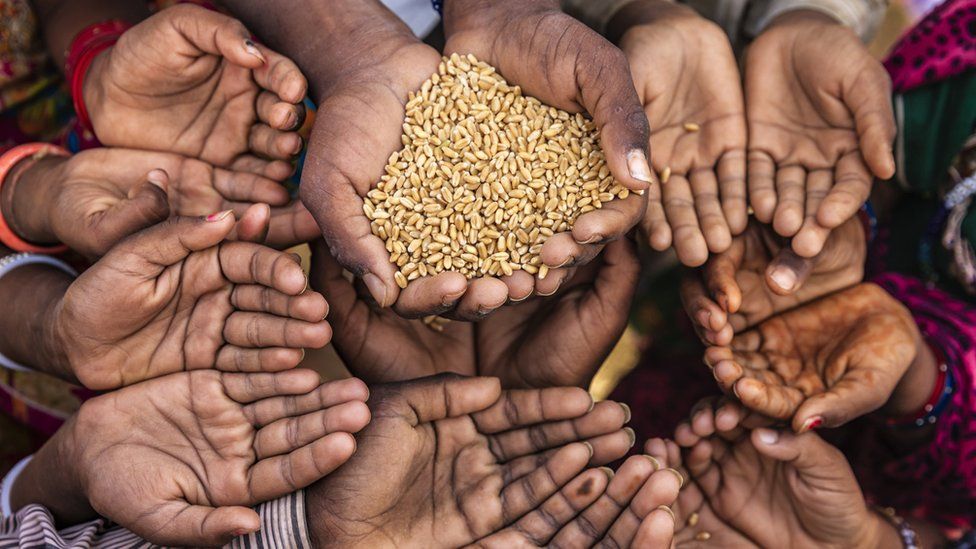
The Global Hunger Crisis and How to Solve It

Fatima Zohra Merzouk
01 Nov 2023
Hunger is a global crisis that affects millions of people every day. According to the United Nations, more than 690 million people suffer from chronic hunger, which means they do not have enough food to meet their basic nutritional needs. Hunger is the leading cause of death in the world, killing more people than AIDS, malaria, and tuberculosis combined.
Hunger is not only a humanitarian tragedy, but also a development challenge. Hunger hampers economic growth, social stability, and environmental sustainability. Hunger also violates human rights and dignity, as everyone has the right to adequate food and nutrition.
But hunger is not inevitable. There are enough resources and technologies to feed everyone on the planet. The problem is not a lack of food, but a lack of access, distribution, and utilization of food. The causes of hunger are complex and interrelated, involving factors such as poverty, inequality, conflict, climate change, and poor governance.
To solve the global hunger crisis, we need a comprehensive and coordinated approach that addresses both the immediate and long-term needs of the hungry people. Some of the actions that can help end hunger are:
- Increase food production and productivity: We need to increase the quantity and quality of food available for consumption. We can do this by investing in agricultural research and innovation, improving soil and water management, promoting sustainable farming practices, enhancing crop diversity and resilience, and reducing food loss and waste.
- Improve food access and affordability: We need to ensure that everyone can access and afford enough food for their needs. We can do this by expanding social protection and safety nets, strengthening food markets and trade, reducing food prices and subsidies, supporting smallholder farmers and rural development, and empowering women and marginalized groups.
- Enhance food utilization and nutrition: We need to improve the way people use and benefit from food for their health and well-being. We can do this by promoting dietary diversity and quality, addressing micronutrient deficiencies and malnutrition, preventing and treating infectious diseases, improving water and sanitation facilities, and raising awareness and education on nutrition.
- Strengthen food governance and accountability: We need to improve the policies and institutions that govern food systems and ensure their effectiveness and responsiveness. We can do this by enhancing political commitment and leadership, fostering multi-stakeholder partnerships and coordination, increasing funding and resource mobilization, implementing evidence-based interventions and monitoring, and ensuring transparency and accountability.
By taking these actions, we can end hunger in our lifetime. Ending hunger is not only a moral obligation, but also a smart investment. Ending hunger can boost economic growth, reduce poverty, improve health, enhance peace, protect the environment, and advance human rights. Ending hunger can also contribute to the achievement of the Sustainable Development Goals (SDGs), a set of 17 global goals that aim to transform our world by 2030.
Ending hunger is possible if we work together. Everyone has a role to play in ending hunger, from governments to civil society, from the private sector to academia, from media to individuals. We can all make a difference by raising our voice, taking action, donating money or time, or simply changing our habits. Together, we can make hunger history.
More Articles
The world needs to fight with the hunger. Let’s learn more



